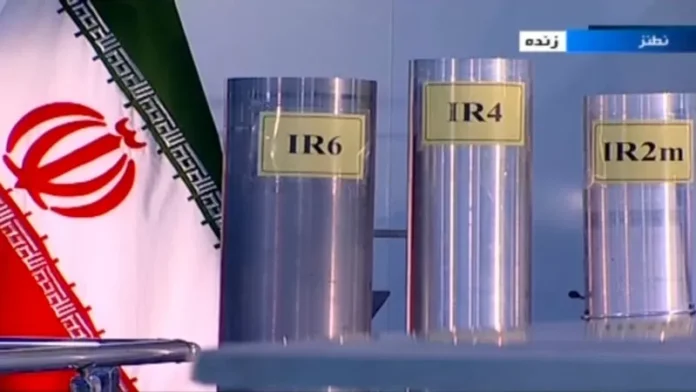Iran’s decision to begin enriching uranium with advanced centrifuges at its two main nuclear facilities has once again raised tensions over its nuclear program. The announcement by the International Atomic Energy Agency (IAEA) on Friday has sparked concerns and speculation about Iran’s intentions and how the incoming administration of U.S. President-elect Donald Trump will handle the situation.
According to the IAEA, Iran will be using new centrifuges to enrich uranium to only 5% purity, a significantly lower level than the 60% it currently does. This could be seen as a signal that Iran still wants to negotiate with the West, despite its recent actions. However, with Trump’s presidency looming, there are questions about how he will approach Iran and its nuclear activities, especially as the country continues to threaten to attack Israel amid ongoing conflicts in the region.
The announcement by the IAEA has not been met with any immediate response from Iran’s mission to the United Nations. This comes as no surprise, as Tehran has previously threatened to advance its program if the agency condemns its actions. In November, the Board of Governors at the IAEA had already condemned Iran for failing to fully cooperate with the agency.
The IAEA’s report outlined Iran’s plans to use advanced IR-2M, IR-4, and IR-6 centrifuges, which are capable of enriching uranium at a faster rate than the country’s current IR-1 centrifuges. These centrifuges will be used in multiple cascades, which are groups of centrifuges that spin uranium gas together to expedite the enrichment process. While the exact number of machines in each cascade is unclear, Iran has previously used around 160 centrifuges in a single cascade.
It is still uncertain if Iran has already begun feeding uranium into these advanced centrifuges, as the country has been vague about its plans. However, the decision to start enriching at 5% gives Iran leverage in negotiations with the West and serves as another way to increase pressure if they are not satisfied with the outcome. It is important to note that weapons-grade levels of enrichment are around 90%.
Since the United States’ unilateral withdrawal from the 2015 nuclear deal, Iran has been pursuing nuclear enrichment just below weapons-grade levels. However, there is no evidence to suggest that Iran has started a weapons program, according to U.S. intelligence agencies and other sources.
As a signatory to the Treaty on the Non-Proliferation of Nuclear Weapons, Iran has pledged to allow the IAEA to inspect its nuclear sites to ensure that its program remains peaceful. The country also agreed to additional oversight as part of the 2015 nuclear deal, which saw sanctions lifted in exchange for limitations on its nuclear activities.
However, Iran has been restricting inspectors’ access to sites and has not fully answered questions about other sites where nuclear material has been found since the collapse of the nuclear deal.
In recent months, Iranian officials, including Supreme Leader Ayatollah Ali Khamenei and President Masoud Pezeshkian, have signaled a willingness to negotiate with the West. However, at the same time, Iran has launched two large-scale missile attacks on Israel amid ongoing conflicts in the region.
Following the IAEA’s announcement, Iranian diplomat Kazem Gharibabadi criticized Europe for its “self-centered” and “irresponsible” behavior. He also accused Europe of failing to play a serious role in the nuclear issue of Iran due to a lack of self-confidence and responsibility.
On the other hand, EU diplomat Enrique Mora described having a “frank discussion” with Gharibabadi and another Iranian diplomat. The talks included the issue of Iran’s military support to Russia, the need for a diplomatic solution to the nuclear issue, regional tensions, and human rights.
It is crucial for all sides to engage in constructive dialogue and find a peaceful solution to the ongoing tensions surrounding Iran’s nuclear program. It is also essential for all parties to avoid any actions that could further escalate the situation. With the incoming administration in the United States and the recent developments in the region, it is imperative that all parties involved act with responsibility and prioritize the safety and well-being of the people in the region.

